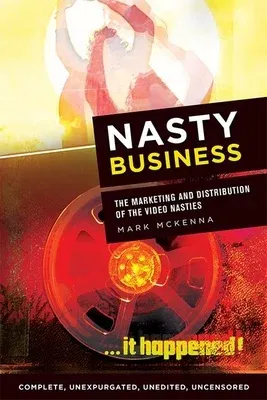In 1984, a disparate group of horror films imported from the USA and
Europe were banned in the United Kingdom. It is popularly believed that
these so-called 'video nasties' were the product of Britain's immoral
and disreputable independent video industry and that - following a
series of public complaints about the advertising being used to promote
these films - a moral panic spontaneously erupted that resulted in the
introduction of the Video Recordings Act in 1984.While neither of these
statements is entirely accurate, both have contributed to a discursively
constructed history that holds the independent video distributors
entirely responsible for the events that followed, with the ushering-in
of a scheme of government- sanctioned censorship that continues in
Britain to this day.Through an exploration of the marketing and
distribution of the video nasties, foregrounding technological, economic
and aesthetic concerns, Nasty Business complicates the established
history and
contextualises the video nasties within the broader global landscape of
an emergent home video industry. It moves beyond the explicitly social
readings that have positioned the video nasties as a quintessentially
British concern, instead reconsidering them as part of a broader global
film industry with promotions demonstrative of wider industrial
practice. And it tracks the development of the category and reveals
other possible motives and benefits in the introduction of the Video
Recordings Act."

